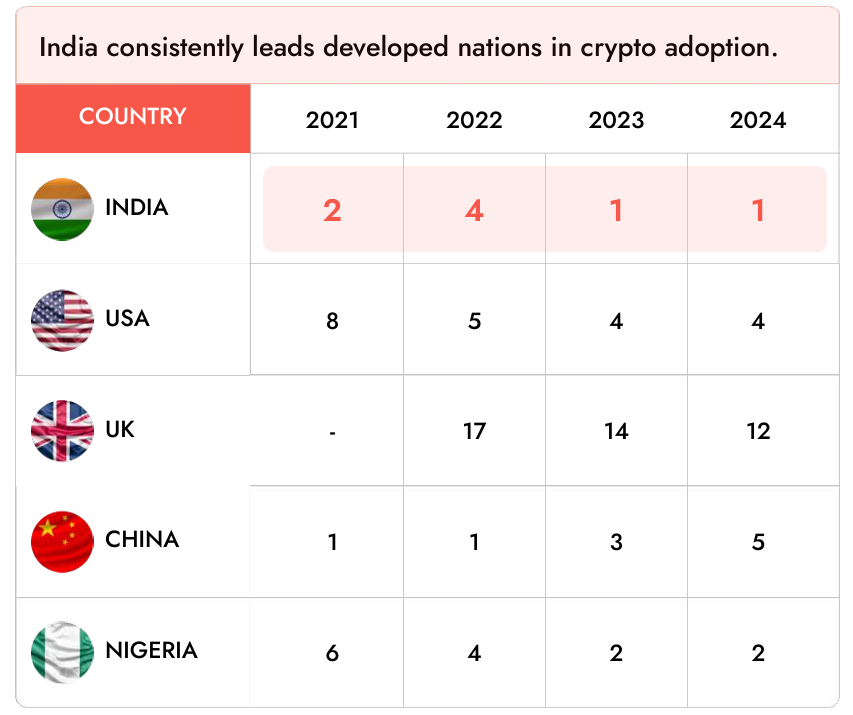Source: Cointelegraph
India is on track to lead Web3 adoption by 2027, driven by startups, developers and government-backed blockchain initiatives.
A massive startup network supported by global investment and local adoption has positioned India to spearhead Web3 innovation, according to a report on the country’s Web3 landscape.
India currently hosts over 1,000 Web3 startups across the finance, infrastructure and entertainment sectors, according to a Hashed Emergent report released on Dec. 4 at the India Blockchain Week conference.

As of 2024, India is home to almost 12% of all crypto developers worldwide, making it the second-largest developer base after the United States. The study estimates that India will take the top spot by 2027. A massive Web3 founder base further supports the startup ecosystem.

Since 2020, the Web3 startups in India have cumulatively secured funding of over $3 billion. In the first nine months of 2024, the ecosystem attracted $462 million in investments, reflecting an 82% growth from the previous year.
“This surge was led by global Web3 funds, accelerators and ecosystem efforts by leading blockchains,” the report said. The study found that most investments went to Web3 infrastructure businesses.
While India’s crypto tax regime initially discouraged individuals from investing in crypto, 2024 saw a resurgence in crypto investing across centralized exchanges, led by new centers of growth and emerging categories.

Data sourced by crypto exchange CoinDCX suggests that 45% of retail portfolios in India feature blue-chip cryptocurrencies, making them the cornerstone of most investment strategies.

Lysto, a gamer’s network, predicted that India’s gaming industry will reach $9.2 billion over the next five years, with Web3 gaming emerging as a key contributor driven by higher average revenue per user.
India is also leading the Web3 race in terms of crypto adoption based on onchain metrics, followed by the US, the United Kingdom, China and Nigeria.

Several central and state government initiatives support Web3 growth, with major use cases being land registry, digital certification and supply chain. Additionally, contributions from leading layer-1 and layer-2 ecosystems and a young developer population are driving the next wave of innovation and growth.
Some major protocols with a footprint in India include Avalanche, Aptos, Ethereum, Polygon, Starknet, Solana and Ton, among others.

One of the biggest problems for the Indian Web3 ecosystem is innovation-stiffling regulations. As a result, prominent challenges for the country include speculative perception, a pro-blockchain but anti-crypto government stance, tax inequities and political perception.

